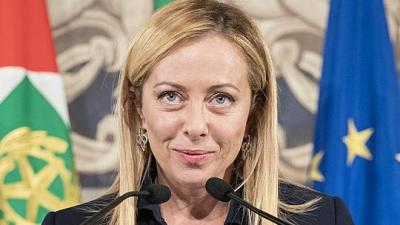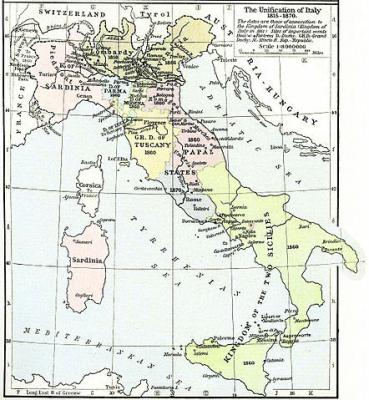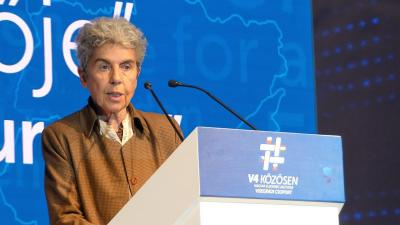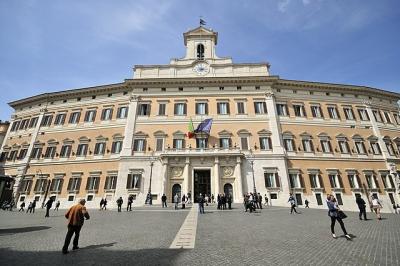Report: The first 100 days of Giorgia Meloni's conservative government
The government led by Giorgia Meloni has reached its first milestone: 100 days in power. Such a result, especially in a parliamentary system as dynamic as the Italian one, provides an additional value not to be taken for granted. The executive established in October after the clear electoral victory of the centre-right coalition in the political elections from the end of September, immediately projected itself within a clear and marked international conjuncture. The latter was defined by the heavy economic crisis hovering on the horizon as well as by the war in Ukraine, which also involved Italy on the side of Kiev.
Since Meloni’s government took office, it has chosen to act with a healthy realism, in line with the Prime Minister's own assurance. This involved taking into consideration the particular fragility of the economy, which is still unable to overcome the difficulties of the post-Cold War period. Despite some noticeable signs of growth, the economy is now heavily burdened by the energy crisis, with the related increases in gas and fuel prices. As a counterbalance to the economic difficulties on the domestic front, the Meloni government has had to deal from the outset with the migratory emergency pressing on Italian shores. This resulted in focusing its attention on the Libyan crisis, which with the new executive has fully re-entered the Italian government's agenda. On the other hand, at the European level, the current executive is burdened with meeting the deadlines on PNRR investments, which are crucial for launching a concrete systemic recovery of the country.
A change of course in the economy: jobs and the energy crisis
The victory of the centre-right marked a turning point in the country's economy and a change of perspective after a decade of governments characterised by the short-sighted and wolfish economic vision of the left and the five-star movement. The most significant act was the announcement of a gradual discontinuation of the “citizenship income”. This was the flagship measure of the party led by Giuseppe Conte (of which the former prime minister was an avid supporter), as well as the reason for much of the result obtained by the Five Star Movement in the last general election. After having analysed the historic negative balance of the measure introduced as a temporary “sustenance” until reintegration into the world of labour, the Meloni government has set itself the goal of reinvesting in the concept of “work” from a different economic perspective. A project that can and must be implemented in several gradual stages, also because the current economic fabric is not able to withstand sudden shocks. What is certain is the provision that out of the 404,000 households that obtain the Rdc, those between 18 and 59 years of age and considered employable will be able to renew the measure for six months. Then, at the first refusal of a job offer, they will lose the subsidy. A tight choice, but made necessary by the increasing negative balance between citizenship income holders and job placements.
The big burden that the executive led by PM Meloni has had to deal with is the energy crisis that weighs like a boulder on Italian families. The government has chosen not to extend in the budget law the suspension of excise duties on fuels launched by the previous government led by former ECB President Mario Draghi. According to the government, in anticipation of a future revision of the excise system itself, the priority is to help those groups and citizens who are much more disadvantaged economically. In the words of the Prime Minister herself, this is 'a measure of social justice' - a theme extremely dear to Giorgia Meloni.
Since 31 December 2022 - when the excise suspension ended -, the government has faced protests and strikes by petrol stations and the fuel sector. The government, as Giorgia Meloni has repeated, “is operating in the worst historical conjuncture since the post-war period”. The energy crisis directly affects families, and is a priority for the government. “But in the current context”, Italy is proving to be solid, with a “great ability to react and resist” - thanks also to the strength of the country's social and economic fabric. The spread has fallen from 236 to 175 basis points, the Italian stock market has risen by 20 per cent, and according to the Bank of Italy's forecasts, the economy is on the way to gradual growth.
Foreign Activities between Ukraine and North Africa
In foreign policy, the government has chosen to confirm its support for Ukraine and to support Kiev’s resistance with concrete military aid. The Prime Minister herself will visit Kiev on a date that has been kept secret for security reasons. At the international level, the government wants to reverse the last ten years, when Italy was absent from the international arena. The only exception was the Draghi government, which enjoyed the personal and professional prestige of the Prime Minister. This absence concerned especially theatres like Libya or Horn of Africa, which were former Italian colonies with well established, historic relationships of cooperation and economic and social partnership. That long decade of political absence considerably undermined Italy's role and prestige, allowing new geopolitical players such as Russia to enter the Libyan theatre, or permitting old ones such as Turkey (successor to the Ottoman Empire) to return to the territories from which Italy had formerly expelled them.
With this in mind, the executive's action has focused on a gradual reintegration of Africa by Italy, attempting to re-establish privileged economic relationship with historic partners even beyond the former Italian territories. An example of this are the four pacts signed with Algeria focused at the energy issue, with idea of creating an energy hub for Europe in southern Italy. Algeria will also be Italy's partner on aerospace issues. With Libya, President Meloni has signed agreements on the supply of gas and concentration of investments to create jobs and development in the areas subject to a huge crisis resulting from the crazy season of the 'Arab Springs'. At the same time, a decisive agreement has been signed to stop the departures of clandestine barges from the Libyan coast. With this in mind, Italy has called for an extraordinary European Council to be convened on 9-10 February to address the issue of defending the external borders of the European Union and the central Mediterranean route. Italy has chosen to return as a protagonist without delay or fear, targeting the area that is strategically and historically fundamental for the country.
Read also
America’s Cultural Revolution: How the Radical Left Conquered Everything
Revolutions are not always violent and bloody. They can also be carried out in seemingly softer ways but still being equally pervasive and destructive of the norms and society they are intended to change. This is the case with cultural revolutions, where actions are taken in schools, universities, and the media and in people's minds without resorting to the use of force.
Francesco Giubilei
The Italian nation after the Unification of Italy
The terms nation and state, sometimes erroneously used as synonyms in public debate, actually represent two different concepts. It is precisely from this distinction that we must start if we wish to define the genesis and cultural references that constitute the Italian philosophical tradition.
Francesco Giubilei
Chantal Delsol: France is a country of riots. And for specific reasons.
Every uprising has its own motives, linked to the events of the day.
Francesco Giubilei
Country Report: Italy, January 2023
Italy's new foreign policy between support for Kiev and the Mediterranean gas pipeline.















Comments (0)